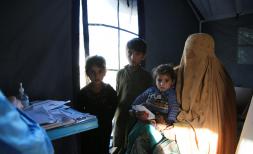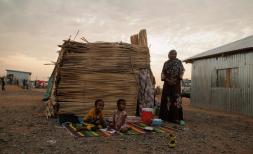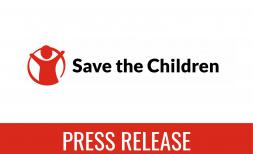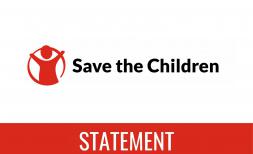Eight years after independence, highest number of people ever face critical food shortages in South Sudan
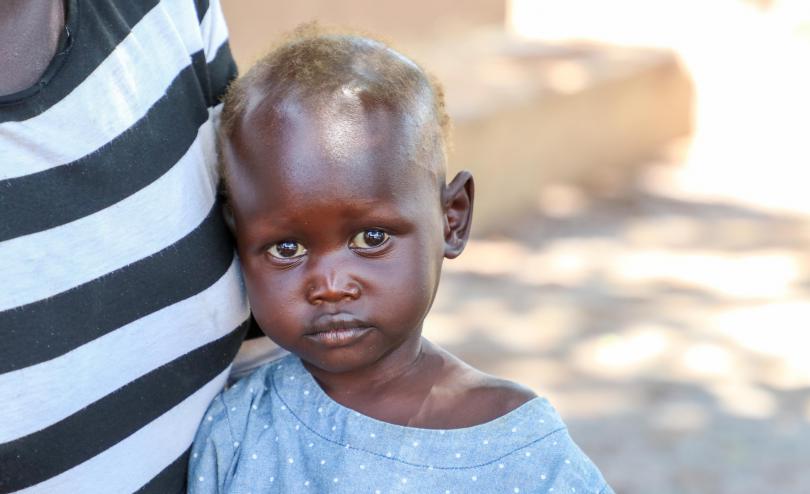
Nearly 7 million people, or 61% of the population, face acute food insecurity in South Sudan, the highest number of people ever in the country, warns Save the Children[i]. This is an increase of nearly 1 million people facing acute food insecurity as per IPC classification since the signing of a revitalised peace deal in September 2018.
Unlike its regional counterparts Ethiopia, Kenya and Somalia which are facing severe food insecurity due to a worsening drought, South Sudan’s food crisis is directly linked to the ongoing conflict, which has dramatically disrupted farming activities, livelihoods, and increased displacement[ii].
While a revitalised peace agreement signed in September 2018 gave hope for millions of children and their families, these latest figures suggest the opposite has taken place. The latest food crisis and continued violence is a strong indication that the peace process needs greater national and international support. Although the UN acknowledges improved human rights situation in the country, a recent report from United Nations Mission to South Sudan reported at least ‘99 girls and women were subjected to rape and other forms of sexual violence.’[iii]
Mary*, 29, is a mother of five from Torit State in South Sudan, whose youngest daughter Sophia*, 2, was recently diagnosed with severe acute malnutrition. Sophia* is now recovering from the brink of starvation thanks to the help of Save the Children. Susan said:
“I feel so sad when there is nothing to feed my children. Sometimes my husband and I have no money to buy flour to make porridge. We sleep hungry at times. It pains me to see my children crying because of hunger…. When we cook porridge in the morning that’s all we have until in the evening, when I fetch some bitter vegetables from the bush and cook them for dinner.”
To ensure South Sudan’s children are protected from a further decline into starvation, Save the Children calls on access to children in need to be guaranteed, humanitarian assistance to be enhanced and sustained, and for a lasting end to the conflict.
Save the Children’s Country Director in South Sudan, Rama Hansraj, said more needs to be done to make sure children are protected in the worsening crisis:
“Children in conflict don’t only die from bullets. Millions more children suffer a slow death through starvation, brought on through the disruption and destruction resulting from conflict. This is the reality in South Sudan. We fear this situation will worsen unless steps are taken to ensure full access to humanitarian organisations to provide life-saving nutrition programming and food supplies.
“The Intergovernmental Authority on Development and its partners must continue to push for implementation of the revitalised peace agreement and engage hold-out groups to join the peace process in order to create necessary conditions, mechanisms and environment for dialogue, in order to have permanent peace and stability in South Sudan. If the implementation is further delayed, all parties should take proactive measures to protect children and address any violations as per international and South Sudan law. We further call on warring parties to stop the fighting and protect the lives of South Sudanese children.”
Save the Children has been working in Southern Sudan since 1989 and the organisation remains at the forefront in providing lifesaving humanitarian assistance in health, protection, child rights, nutrition and education for children across 10 field sites in South Sudan. The agency works closely with partners to ensure South Sudan ratifies and implement international and regional child focused treaties for the protection of children’s rights in South Sudan and supports the government in doing so.
*Names have been changed to protect identities
[i] According to the most recent IPC figures, in May-July 2019, an estimated 6.96 million people (61% of the population) are likely to face Crisis (IPC Phase 3) acute food insecurity or worse, out of which an estimated 1.82 million people will face Emergency (IPC Phase 4) acute food insecurity and 21,000 will likely be in Catastrophe (IPC phase 5). This is historically the highest number of people in South Sudan ever to face Crisis (IPC Phase 3) acute food insecurity or worse. http://www.ipcinfo.org/ipc-country-analysis/details-map/en/c/1152080/
[ii] According to the UN’s Food and Agriculture Organisation (FAO), the most destructive of all the factors affecting food stability in South Sudan is conflict, which is disrupting livelihoods and increasing displacement: an estimated 4.4 million people have fled their homes since the outbreak of violence in 2013, including 1.9 million internally displaced persons (IDPs): http://www.fao.org/emergencies/crisis/south-sudan/intro/en/
[iii] UNMISS 03 JUL 2019 Human Rights Division Report on Central Equatoria https://unmiss.unmissions.org/sites/default/files/final_-_human_rights_division_report_on_central_equatoria_-_3_july_2019.pdf
